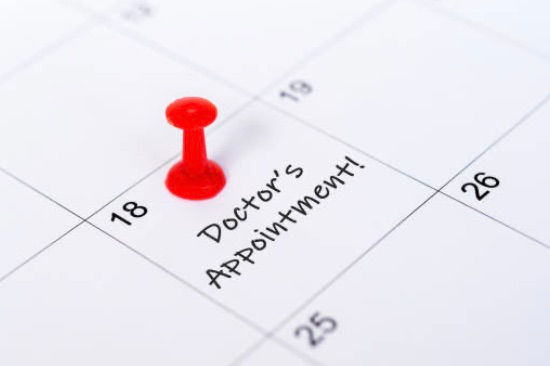Time to Make That Call
- COME Outreach

- Dec 14, 2024
- 2 min read

It is time to schedule those annual appointments for you and your loved one. It is mid-December, and it can take two to three months to get an available appointment, especially for a specialist. Consider making that call. How much you and your loved one get out of each doctor’s visit depends on how much planning you put into it, how much follow-up action you take, and the time you spend with the doctor. You may only have 15 minutes with the doctor, so you must make every minute count.
Before the visit: Write down all the questions you and your loved one want to ask. Record all the symptoms your loved one has experienced since the last visit and note any physical or mental changes. Make a list of all the other physicians and healthcare providers seen, trips to the ER or hospital, and other health-related incidents since your loved one’s last visit to the doctor. Bring a copy of the hospital discharge summary if you have one. Inform the doctor of any significant unexpected circumstances that may have occurred, for example, recent death, birth of a baby, or any tragic major life event. Talk with your loved one about what you want to accomplish during this doctor’s visit. For instance: What are your loved one’s main concerns? Is it about physical symptoms, like pain or shortness of breath? Or feelings, such as being sad and worried? What are your main concerns? Figure out how to talk with the doctor about sensitive issues. These might include a symptom that feels embarrassing, like incontinence. Each of you may need time to talk alone with the doctor.
During the visit: Your loved one may want you to stay in the waiting room while the doctor examines them, or they might want you to come into the doctor’s exam room. When it’s time to talk, your loved one might prefer you remain quiet. If your loved one has advanced dementia or is otherwise unable to communicate, then you will need to take a more active role. Many doctors are available for scheduled telephone calls. To make this call most effective, have your list of concerns ready and limit the list to the items that you do not wish to discuss in front of your loved one. Ask the doctor to assist you in completing a Health Care Proxy, and a Do Not Resuscitate (DNR) form if needed. Ask for a copy for your record. Do not be afraid to ask the doctor for clarity and explain things at a level you can comprehend.
After the visit, Ask the doctor for a copy of the visit note and the most recent lab values so that you can provide other healthcare providers with updated information. Schedule the follow-up appointment. Fill all prescriptions promptly and ask the pharmacist if there are any possible negative interactions or side effects you should report to the doctor. Caregivers Outreach Mentorship Empowerment wishes you all a safe and pleasant Merry Christmas. Let’s not forget the reason for the season. Continue to Be Blessed and Be a Blessing.
Diane Cooper


Comments